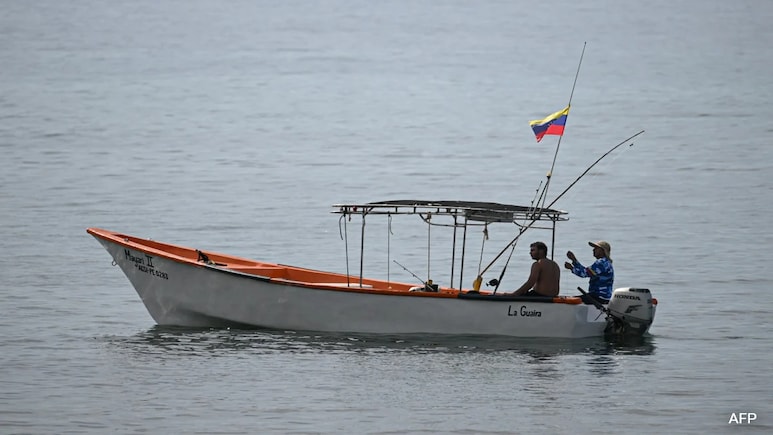
Venezuela, on high alert over a US military deployment off its coast that has stirred invasion fears, will hold disaster preparedness drills on Saturday as President Nicolas Maduro mulls invoking emergency powers.
President Maduro called for the drills on Thursday, hours after several earth tremors rattled a population already unnerved by deadly US strikes on alleged Venezuelan narco boats.
US President Donald Trump has deployed eight warships and a nuclear-powered submarine to the southern Caribbean as part of a stated plan to combat drug trafficking.
US forces have destroyed at least three suspected drug boats in the Caribbean in recent weeks, killing over a dozen people in a move decried as "extrajudicial execution" by UN experts.
Now, US military officials are drawing up options to target drug traffickers inside Venezuela's borders, according to a report by NBC citing four sources familiar with the discussions.
The strikes could happen "in the next several weeks," although Trump has not yet approved them, the report said.
President Maduro, whom President Trump accuses of leading a narco cartel, suspects Washington of pursuing regime change.
Thousands of Venezuelans have joined a civilian militia in response to President Maduro's call for bolstering the cash-strapped country's defenses.
Many have taken part in weapons training held at military barracks and in neighborhoods.
Adding to the tension, the country's west was rattled by a series of quakes Wednesday and Thursday, of which the strongest registered a magnitude of 6.3 but without causing major damage or any casualties.
President Maduro referred to US "threats" as he called for a drill starting at 9:00 am on Saturday to test "the people's readiness for natural catastrophes or any armed conflict."
Schools and hospitals are to take part "to prepare for any circumstance," the president said.
On Tuesday, he appeared on state television with a red folder on which was written: "Decree declaring a state of external commotion across the national territory."
Venezuela's constitution allows for such a decree in the event of an "external conflict that seriously endangers the security of the nation, its citizens, or its institutions."
It grants the government emergency powers to bypass parliament, suspend constitutional guarantees and deploy the military, among other measures.
President Maduro has not implemented anything yet, but said Tuesday that "we are preparing significant decrees... for any scenario that may arise."
Rights groups have told AFP they fear the government would use an emergency decree to restrict freedom of assembly, movement and expression.
The country already holds hundreds of people for political reasons, according to the rights group Foro Penal -- many of them arrested in unrest that followed President Maduro's disputed re-election in July last year.
His victory claim was not recognized by the United States and many other countries.
At the UN General Assembly this week, Colombian President Gustavo Petro called for a "criminal process" to be opened against Trump over the Caribbean strikes on Venezuelans not convicted of any crime.
(Except for the headline, this story has not been edited by NDTV staff and is published from a syndicated feed.)
Track Latest News Live on NDTV.com and get news updates from India and around the world

